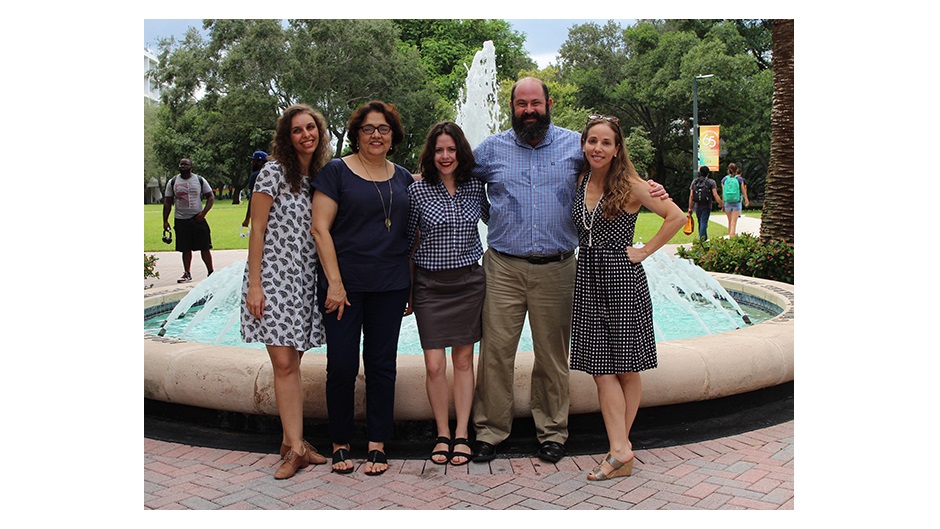Since 2006, the Portuguese Program at the University of Miami College of Arts and Sciences has welcomed young Brazilian scholars to collaborate with faculty for one academic year as Fulbright Foreign Language Teaching Assistants (FLTAs). The Fulbright program is an international educational exchange that provides international scholars the opportunity to study, teach, conduct research, and exchange ideas at U.S. educational institutions.
“The Fulbright FLTA program in our department is in line with President Julio Frenk’s initiative to create a global university with a concentration on scholarship in and on the Americas,” said Dr. Tracy Devine Guzmán, associate professor of Latin American Studies and director of Graduate Studies in the Department of Modern Languages and Literatures (MLL).
This academic year, faculty members and staff in the department welcomed Brazilian scholar and São Paulo native, Marcia Fanti Negri. The department is also pleased to have a former Fulbright teaching assistant, Lidiana de Moraes, back at UM as a first-year graduate student in MLL’s Ph.D. program.
“The growth of the program is international in its scope,” said Dr. Steven Butterman, director of the Portuguese Program and associate professor of Brazilian Studies. “All of the faculty members have received awards of different kinds, like the Brazilian International Press Award, for the quality of their teaching. Our coursework and program really put a lens on many diverse issues in Brazil, such as women’s and indigenous rights, as well as LGBTQ rights.”
The Portuguese Program offers a rich array of activities on the Coral Gables campus, starting with the much-acclaimed Brazilian Film Series. Once a month, UM students, faculty, staff, and the community are welcomed to watch Brazilian films, savor Brazilian snacks, and after the film, engage in conversation to discuss the cultural and linguistic aspects of the film.
“We try to coordinate our film series with our curriculum by coming up with a theme that makes sense and has some consistency with the coursework we present to our students, which is altered every semester,” said Butterman.
Currently, approximately 80 students are enrolled in the Portuguese Program, which includes undergraduate and graduate students, and there are plans to develop an undergraduate major in Brazilian Studies.
Students in the program also have an opportunity to perfect their language skills by participating in roundtable discussions – conducted in Portuguese – with graduate TAs and faculty members. The topics are chosen by the students and are ideal times for them to improve their skills and speak openly about their engagement with Brazilian society, politics, and cultural production. In addition, UM students participate in face-to-face sessions known as Teletandem with students in Brazil via the Internet. Students on both sides are encouraged to practice their Portuguese and English, respectively.
Butterman is also proud of the UM Libraries Special Collection of rare underground journals, periodicals, and newspaper articles produced during Brazil’s military dictatorship from 1964 to 1985. The collection, known as the “Leila Miccolis Brazilian Alternative Press collection, 1960-2002,” features works gathered by Miccolis, a renowned poet and a former lawyer who became an activist in the 1960s. The collection includes poetry, university publications, film reviews, musical pieces, and more, accumulated over the course of 45 years.
“The collection includes materials that are very controversial in nature and tell stories about minorities in Brazil during those times,” said Butterman. “Scholars from around the world have come to UM to see the collection for research purposes. It’s truly an amazing treasure.”
“The fact that UM was interested in this collection is great proof of the involvement and commitment of the program to Brazilian culture,” said graduate student Lidiana de Moraes.
November 09, 2016

